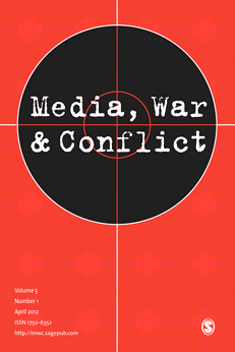The Journal of Computer-Mediated Communication has just published a study, authored by Cristian Vaccari (with Augusto Valeriani from the University of Bologna and Pablo Barberá, Rich Bonneau, John T. Jost, Jonathan Nagler, and Joshua A. Tucker from the Social Media and Political Participation lab at New York University) that discusses the relationship between political information and expression on social media and other forms of online political participation. The study, titled "Political Expression and Action on Social Media: Exploring the Relationship Between Lower- and Higher-Threshold Political Activities Among Twitter Users in Italy" finds that there is a strong positive correlation between less demanding activities (often dismissed as "slacktivism") such as getting informed about politics and informally expressing one's political viewpoints on social media and more demanding ones, such as campaigning for a party or candidate on social media and attending an offline political event after receiving an online invitation to it. The research employs a novel method to survey Twitter users who talk about politics, which Vaccari has developed as the Principal Investigator of a comparative project on social media and political engagement funded by the Italian Ministry of Education, and is based on online interviews with a sample of 1,493 Twitter users who discussed the Italian 2013 election campaign on this platform. Here is the abstract:
Scholars and commentators have debated whether lower-threshold forms of political engagement on social media should be treated as being conducive to higher-threshold modes of political participation or a diversion from them. Drawing on an original survey of a representative sample of Italians who discussed the 2013 election on Twitter, we demonstrate that the more respondents acquire political information via social media and express themselves politically on these platforms, the more they are likely to contact politicians via e-mail, campaign for parties and candidates using social media, and attend offline events to which they were invited online. These results suggest that lower-threshold forms of political engagement on social media do not distract from higher-threshold activities, but are strongly associated with them.
The authors welcome feedback and comments. Supplementary materials can be found on the project's website.
JCMC is an open-access journal ranked 3rd by Google Scholar for Communication and 6th out of 74 by ISI [subscription required].



